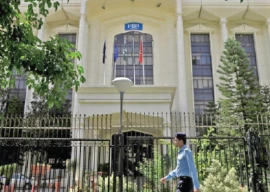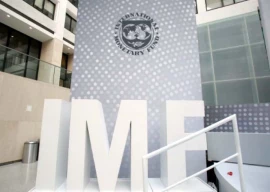
The Auditor General of Pakistan has raised a serious observation on the real incomes and tax contributions of dozens of officers of the Ministry of Finance who are serving on the boards of 60 state-owned companies, yet there are no traces of their earnings from these firms.
The federal auditor – the country’s public exchequer’s watchdog – has framed an objection while performing an audit of the Ministry of Finance for the fiscal year 2022-23 and the audit year 2024. According to the record provided to the AGP, there were 60 State-owned Enterprises (SOEs) where the officers of the Finance Division were represented as board of directors.
Although the AGP does not provide the amount of fee for attending a board meeting in its audit objection, the officers of the finance ministry earn anywhere from as low as Rs25,000 per person per meeting to as high as Rs1.5 million or $5,000 per board attendance.
Under the income tax law, 20% of the board fee has to be paid in income tax, according to the federal auditors. The AGP has shed light on an issue that the Ministry of Finance has long been pushing under the carpet. The non-disclosure of the fees and memberships has diverted attention from the role of the Ministry of Finance in the poor performance of the SOEs and also their actual earnings, which sometimes exceed their annual salaries.
Officers of the Finance Division ranging from deputy secretaries, joint secretaries, additional secretaries to secretaries are members of more than one board at a time. Sometimes, these board meetings are arranged merely as an excuse for officials to visit their hometown at the public exchequer, according to sources. Last month’s report of the Ministry of Finance on the SOEs’ performance revealed that the SOEs caused more than Rs730 billion in losses in fiscal year 2022.
The federal audit report, which has not yet been submitted to Parliament, revealed that there was no centralised record available in the Finance Division related to the approvals, meetings, fees, and remuneration to the officers nominated by the Finance Division were provided to the audit department.
The documents further stated that there were 16 wings working under the Ministry of Finance but only four wings’ list was provided to the auditors. The Ministry of Finance was reluctant to provide the details of the officers of the other 12 wings to the auditors.
Read Finance ministry to oversee four SOEs
The AGP report further stated that there were also no details of the amount paid as remuneration to the members and income tax deducted.
“Audit is of the view that non-maintenance of payment details of remuneration to the members from Finance Division and non-deduction of tax not only caused loss to the public exchequer but is also a serious lapse on the part of the management,” according to the federal auditors.
The Express Tribune talked with some of the board members of the SOEs belonging to the finance ministry. They said that the concerned government company deducts the income tax and disburses only net payment to them.
In some cases, these companies pay full amounts to the board directors and deposit the tax from the company’s kitty, which is a misuse of public resources. This practice is common in case of large companies, some of them paying fees in foreign currency to their board members, the sources added.
The bureaucracy has long been misusing public resources. These bureaucrats ask the management of these companies to arrange meetings in foreign destinations, like Amsterdam, London, Paris, New York, and Dubai to have foreign trips in the name of attending the board meetings, said the sources. During their foreign trips, the concerned government-owned company bears the cost of international traveling, lodging, residence and also provides chauffeur-driven cars to the board directors, said the sources.
The Finance Division has given a reply to the auditors, which they have rejected. According to the reply, the Finance Division only nominates the officers as directors on different boards of SOEs; however, the remuneration and board fee are not paid by the division or from the government account. The Finance Division further argues that as the fee is paid by the concerned government-owned company, therefore, the details of board fees are available with these firms.
But the AGP has rejected the reply on the grounds that the Finance Division nominates officers on different boards and these members are officially nominated and working on behalf of the Finance Division, thus, the account of remuneration is required to be managed by the Finance Division.
Published in The Express Tribune, February 9th, 2024.
Like Business on Facebook, follow @TribuneBiz on Twitter to stay informed and join in the conversation.





1731578852-0/diddy-(41)1731578852-0-165x106.webp)















COMMENTS
Comments are moderated and generally will be posted if they are on-topic and not abusive.
For more information, please see our Comments FAQ